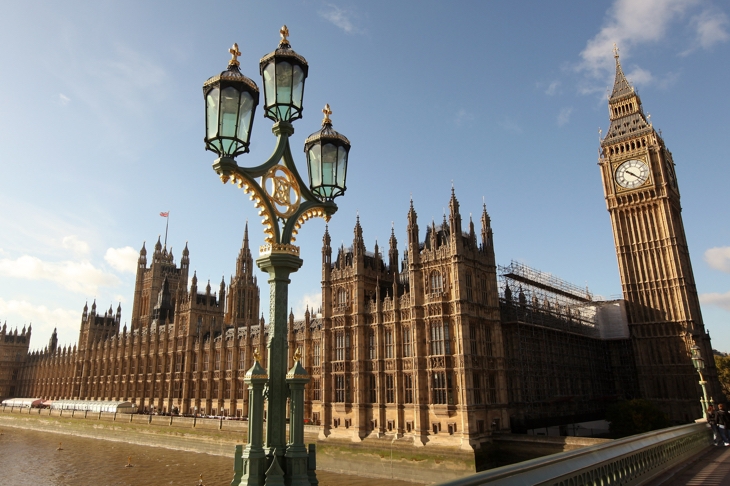As many people have remarked, a terror attack in the centre of London was expected at some point, although it is no less shocking for that. Aside from St Peter’s Basilica or perhaps the Eiffel Tower, there is probably no other European building as recognisable to Europe’s enemies as the Palace of Westminster.
Theresa May wasn’t quite correct when she referred to it as the oldest Parliament – both Iceland and the Isle of Man have more ancient bodies, being descended from those egalitarian Vikings – but it’s certainly fair to call Westminster the Mother of Parliaments, a powerful symbol of representative government.
Just west of the city of London and located by the Thames, Thorney Island has been a royal residence since most likely England’s Danish king Canute (1016-1035) and certainly Edward the Confessor (1042-1066), who restored the House of Wessex after Canute’s hooligan sons had drunk themselves to death. Edward also rebuilt St Peter’s church nearby on the site of an older Saxon building; this ‘west minster’ soon gave its name to the area.
The oldest surviving part of today’s palace dates to later that century and the reign of William II, the conqueror’s son, who had it constructed before his death in a mysterious hunting accident. Notoriously sacrilegious and dismissive of priests, William Rufus’s court became the subject of wild rumours of depravity, one clergyman describing with horror: ‘The model for young men was to rival women in delicacy of person, to mince their gait and to walk with loose gesture and half naked.’ Another churchmen complained that unlike the hard men who hung around his father, the court was now full of ‘prostitutes and parasites’.
And so people have viewed Westminster ever since, the name a sort of by-word for the powerful and out-of-touch. Since the 13th century, however, it has become famous not for the monarch but another institution altogether. At the time England was ruled by Henry III, a rather timid man who liked to go to Mass five times a day and was described as ‘simplex’ by a contemporary chronicler. Henry spent huge sums rebuilding Westminster Abbey, the result being the present building across the square from Parliament, but he was notoriously hopeless with money and his French wife’s family had become immensely unpopular with the native aristocracy.
Some of these barons began to have informal get-togethers where they’d sit around complaining about the state of the country and the king’s in-laws, which at some point acquired the name ‘speaking’, or ‘parliament’ (the first parliaments were, of course, in French). They soon had a leader in the form of Simon de Montfort, who led on a sort of platform of populist xenophobia, despite being fantastically wealthy (he was married to the king’s sister) and having only arrived from France in his twenties without a word of English. De Montfort’s parliament met at Westminster in 1265, considered a milestone in the history of representative democracy. (De Montfort ended up having his testicles chopped up and hung around his nose, but in a sense he won in the long term, and his face can be seen on the doors of the US House of Representatives.)
Later, when the House of Commons was created under Henry’s son Edward I, parliament would become synonymous with Westminster. Desperate for money to fight various wars – you might remember Edward from that moving historical documentary, Braveheart – ‘Longshanks’ both established the Commons and confirmed Magna Carta.
I’ve often argued that there are no such thing as ‘British values’, because what binds a country together, like what joins a family together, is a shared history and the hope of a shared future. Westminster, in particular, is at the heart of that history and the traditions that came from it, symbolising the English parliamentary tradition of political moderation and continuity. If any good comes from this tragedy perhaps we’ll better appreciate in future our elected representatives, who for the most part are good people working to continue that tradition. Sorry to end on such a platitude – I’ll be on Thought for the Day at this rate – but sometimes platitudes and clichés are the only appropriate response to a tragedy.







Comments